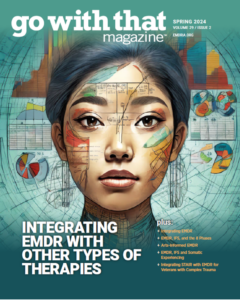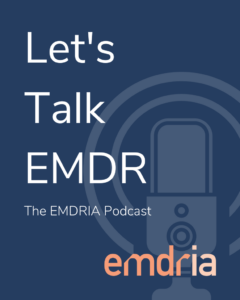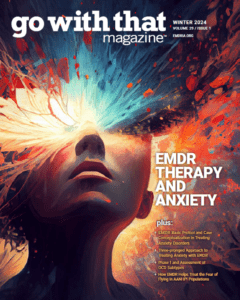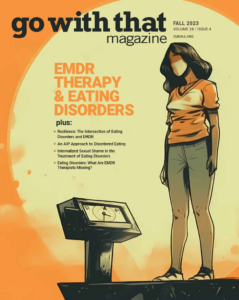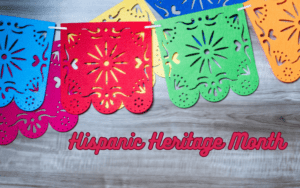Mental health and conflict: A pilot of an online eye movement desensitization and reprocessing (EMDR) intervention for forcibly displaced Syrian women (Frontiers in Public Health)
This study looked at the effects of EMDR therapy treatment for forcibly displaced Syrian women with PTSD delivered by forcibly displaced Syrian women EMDR therapists.
Read MoreEMDR Therapy and American Asian, Native Hawaiian & Pacific Islander Population
The Asian American, Native Hawaiian and Pacific Islander (AANHPI) community has been touched by trauma particularly AANHPI military veterans.
Read MoreUtilizing EMDR Therapy in Black Communities
EMDRIA member Desyree Dixon, EdD, LCSW-C shares about her experience using EMDR therapy in Black Communities.
Read MoreCommunity Voices on Clients with Anxiety
EMDR therapists respond to how aspects of a client’s culture/race are meaningful as a resource and/or as a challenge for clients with anxiety.
Read MoreEMDR Case Conceptualization for Fear of Flying in the AANHPI Populations
This article explores the efficacy of using EMDR with Asian Americans, Native Hawaiians, and Pacific Islanders who experience fear of flying.
Read MoreEMDRIA Members Respond: Community Cultural Wealth for Black History Month
EMDR therapists celebrate Black History Month using the lens of Community Cultural Wealth to identify resources in their clients.
Read MoreBIPOC Perspective on Eating Disorders
Examples of how a client’s culture/race was significant in the use of EMDR therapy for eating disorders or disordered eating.
Read MoreEMDR Therapy and Intergenerational Trauma
EMDRIA member Viviana Urdaneta discusses how EMDR therapy can help heal intergenerational trauma.
Read MoreEMDRIA Members Respond: Community Cultural Wealth for Native American Heritage Month
EMDR therapists can celebrate Native American Heritage Month by intentionally using the lens of Community Cultural Wealth to identify internal and external resources in their clients.
Read MoreEMDRIA Members Respond: Community Cultural Wealth for Hispanic Heritage Month
EMDR therapists can celebrate Hispanic Heritage Month by intentionally using the lens of Community Cultural Wealth to identify internal and external resources in their clients.
Read More
